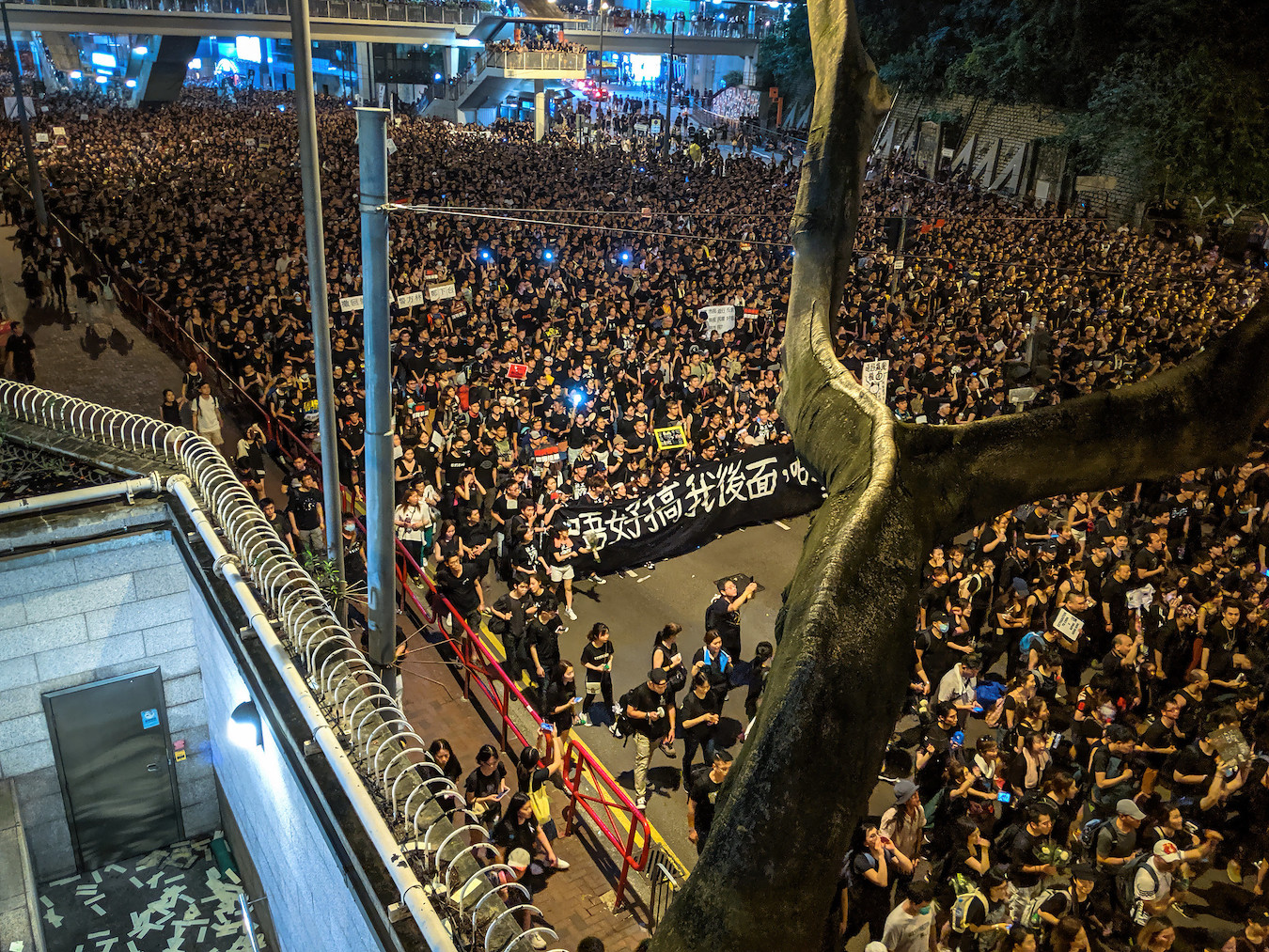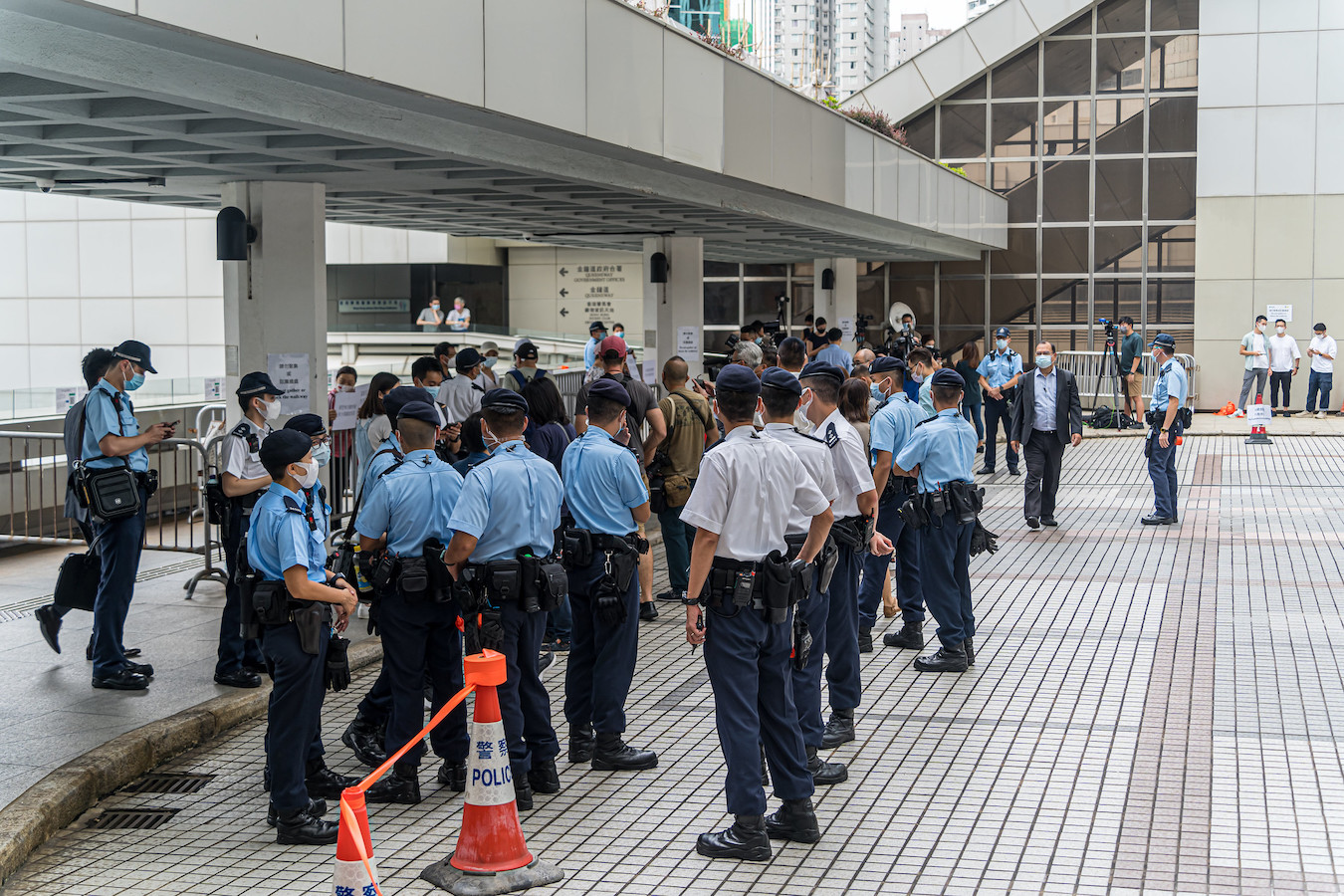by Brian Hioe
語言:
English
Photo Credit: Studio Incendo/Flickr/CC BY 2.0
FIVE MEMBERS of a speech therapists’ union were sentenced t in Hong Kong earlier this month on sedition charges over a series of children’s books. The charges used by police date back to British colonial times and the five have been sentenced to nineteen months in prison.
The five speech therapist union members are Samuel Chan, Marco Fong, Lorie Lai, Sidney Ng, and Melody Yeung, who are between 26 and 29 years old. The five are around a dozen or so individuals arrested on sedition charges since 1997 and pleaded not guilty. Some struck a defiant note in comments, stating that they regretted only not producing more children’s books.
It is not unusual for Hong Kong police to use British colonial law to target activists in Hong Kong, one way in which the Chinese government inherited the structures of British colonialism in Hong Kong, and uses colonial precedents to crack down on contemporary descent. Ironically, even as many in Hong Kong currently pay tribute to the recently deceased Queen Elizabeth II, lèse-majesté laws used to target insulting the Queen were among the laws used by Hong Kong authorities as part of this. Use of such laws was common in the period in 2020 immediately after the passage of national security legislation, but it seems before police were ready to immediately set legal precedents through the use of the national security law.
 Photo credit: Studio Incendo/Flickr/CC BY 2.0
Photo credit: Studio Incendo/Flickr/CC BY 2.0
Among others to face sedition charges at present is Jimmy Lai, the founder of the pro-democracy tabloid, the Apple Daily. The Apple Daily shut down in June 2021 after the newspaper’s assets were frozen, its offices raided by hundreds of police officers, and company executives arrested.
The books published by the speech therapist union depicted the Chinese government as wolves and Hongkongers as sheep. Some of the books touched on contemporary events in Hong Kong, such as twelve Hongkongers detained by the government after attempting to flee by boat to Taiwan, or Hong Kong medical workers involved in the fight against COVID-19.
The plight of the twelve Hongkongers was a catalyst for renewed activism in Hong Kong during a low point in protests, which originally began in 2019 originally over an extradition bill that would have allowed Hongkongers to be deported to China to face charges. It was feared that this bill would be used to persecute political dissidence. In the wake of the protests, given significant distrust of the government and the Hong Kong government’s refusal to swerve away from COVID-zero policies, earlier this year Hong Kong reported the world’s highest death rate due to COVID-19.
Targeting the speech therapist union may be deliberate, with the uptick in union activity after the 2019 protests. Following the protests, many sought to politically organize in their workplaces and within their professions. Apart from that large union groups have been pushed into disbanding, Beijing may be hoping to send a message by targeting an occupational union.
To this extent, the Hong Kong government has sought to depict the speech therapists as seeking to brainwash children as young as four. Yet one notes that the issue of Beijing’s efforts to “reeducate” Hong Kong youth has been a longstanding issue. Scholarism, which later became Demosisto, was originally formed by secondary students that opposed Beijing’s attempts to instill “patriotic education” to convince Hong Kong students to be loyal to China.
 Photo credit: Studio Incendo/Flickr/CC BY 2.0
Photo credit: Studio Incendo/Flickr/CC BY 2.0
After the 2019 protests, the Hong Kong government has indicated that it intends to renew efforts at patriotic education, as though its efforts the first time around did not provoke blowback–from young people themselves that would be the target of such efforts. Indeed, Lu Shaye, China’s ambassador to France, recently raised eyebrows with comments stating that Taiwanese would be “re-educated” after unification with China.
Yet with the emergence of a “Yellow Economic Circle” after the 2019 protests, consisting of pro-democracy businesses and establishments, it would also not be surprising that Hongkongers would themselves seek to combat China’s efforts to influence the political views of Hong Kong children–as with the children’s books. But that China would target the speech therapists involved in producing the books illustrates how education continues to be an arena of political contestation between the pro-democracy and pro-Beijing camps. One expects further attempts by China to stamp out pro-democracy education efforts.

